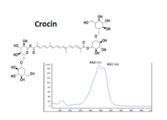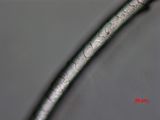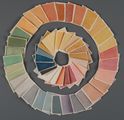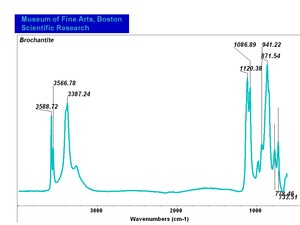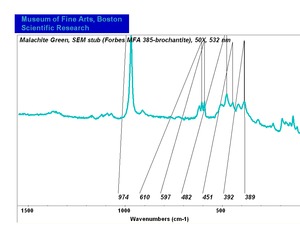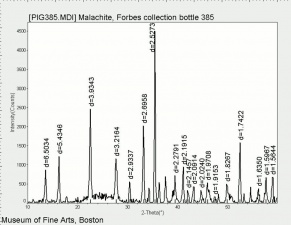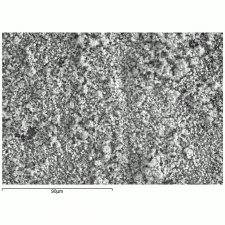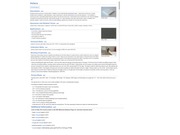Difference between revisions of "Hokusai, test1"
(Created page with "__NOTOC__ =Conservation & Art Materials Encyclopedia Online= The '''Conservation and Art Materials Encyclopedia Online (CAMEO)''' is a database that compiles, defines, and...") |
|||
| Line 7: | Line 7: | ||
<gallery mode= "nolines" widths="200px"> | <gallery mode= "nolines" widths="200px"> | ||
| − | File:Malachite_Zairekes.jpg|:Category:Materials database|center|'''Materials Database''' | + | File:Malachite_Zairekes.jpg|link=:Category:Materials database|center|'''Materials Database''' |
File:Crocin.PNG|:Category:Dye Analysis|<center>Dye Analysis</center> | File:Crocin.PNG|:Category:Dye Analysis|<center>Dye Analysis</center> | ||
File:7fcf67d226714e0beab486b64b2e6a4c.jpg|Fiber Reference Image Library|<center>Fiber Reference Image Library</center> | File:7fcf67d226714e0beab486b64b2e6a4c.jpg|Fiber Reference Image Library|<center>Fiber Reference Image Library</center> | ||
Revision as of 20:14, 17 June 2020
Conservation & Art Materials Encyclopedia Online
The Conservation and Art Materials Encyclopedia Online (CAMEO) is a database that compiles, defines, and disseminates technical information on the distinct collection of terms, materials, and techniques used in the fields of art conservation and historic preservation. First developed as a materials database in 1997 at the Museum of Fine Arts, Boston it has expanded with the cooperation of multiple institutions to include several reference collections. Learn more about CAMEO.
To use CAMEO, select any of the databases on the left or below, or simply search by entering text into the search box at the top right.
NEWS & UPDATES
March 3, 2020
CAMEO is currently creating two new databasese, the Asian Textile Database in collaboration with the Smithsonian's National Museum of Asian Art and Ukiyo-e Colorant Database. Stayed tuned to this page!
February 12, 2020
A concerted effort is currently underway to evaluate and upgrade the analytical spectra that are presented in CAMEO. This primarily includes examining current Infrared and Raman spectra to ensure their accuracy as well as to provide images with wavelength markers for the major peaks. The major work on MFA contributions is being done by Dr. Erin Mysak. Concurrently, Dr. Abed Haddad, the David Booth Fellow in Conservation Science from the Museum of Modern Art in New York City is examining and contributing to the Raman reference set.
See for example the Brochantite slider gallery shown on this page. For this particular sample, the Forbes pigment jar was labeled ‘Malachite Green’, but all analysis techniques confirmed its identity to be brochantite. One of our efforts has been directed toward correctly identifying the pigments in the Forbes reference set.
Funded by: Sotheby’s Scientific Research Department
January 15, 2020
The Materials Selection and Specification Working Group (MWG) at the American Institute for Conservation (AIC) is leading an effort to provide a resource bank of information that will help develop best practices in selection of materials used in the preservation, transport, and display of cultural heritage. CAMEO has been designated as the platform for the consolidated information on materials with new sets of information added under the headers: Applications, Personal Risks, Collection Risks, Environmental Risks, Working Properties, and Forms/Sizes. The ‘Additional Information’ field will contain links to the Oddy Test results residing in the AIC Wiki. The ‘Environmental Risks’ section will be populated with information developed as part of the recently funded NEH grant for Life Cycle Assessment of materials and treatments used in cultural conservation. CAMEO will also provide links to the Life Cycle Assessment tool that will enable the comparison of carbon footprints for over 3000 materials.
Go to: AIC Wiki
By using this encyclopedia, you are agreeing to the terms stated in the User agreement.

